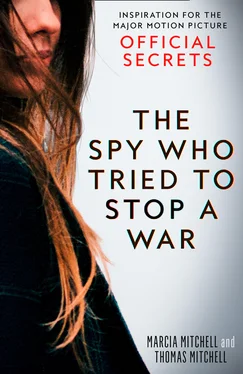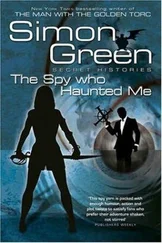In fairness, Blair had earlier supported containment as the way to handle threats from Iraq, and he was concerned about what would happen if military action were precipitously undertaken. The report concluded that he was innocent of inventing or distorting evidence to support the war – but that he had indeed weakened and acquiesced to Bush, and that he was responsible for ill-fated decision-making and its ultimate result. In a heated and nearly tearful response, Blair defended his honour, insisting that he had not been a US pawn, that he ‘did not mislead [his] country.’
Regardless, it is impossible for this author to reconcile the report’s findings with Blair’s overarching denial: ‘What I cannot do and will not do is say we took the wrong decision.’ The world believes otherwise.
Strangely silent in the debate – both during Katharine’s case and after the monumental report was released – was the United States. In July of 2016, that country was distracted by the nastiest, most vicious election campaign in its history. The annoying ‘Iraq issue’ neatly folded into the campaign only as a political weapon: Which candidate had supported the 2003 invasion, and which had not? Still, many American lawmakers regret having supported the invasion.
In The Restless Wave , published shortly before his 2018 death, US Senator John McCain wrote that the Iraq War ‘can’t be judged as anything other than a mistake’. One of the most hawkish Senate Republicans, he had been firmly in favour of the invasion. Later, he took full responsibility for ‘my share of the blame for it’. Hillary Clinton, a Democratic senator from 2001–2009, apologized during the 2016 presidential campaign for her previous aye vote in Congress, for having been deceived by the surround-sound of political rhetoric deafening Capitol Hill.
What is easy to miss in the continuing flurry of political hindsight is what Katharine Gun actually accomplished. No, she was not able to stop the war. However, she revealed a crime, a plot to start and legitimize a war. There is no question that had the UN Security Council adopted a proposed resolution to legalize the war, the Iraq narrative would have been different. The invading coalition would have had legal justification for its action. While criticism certainly would have followed military action, it would have been considered and voiced differently – seen as a coalition of countries, authorized by the Council and acting legally and legitimately. Without Katharine’s act of conscience, the invaders would have achieved what they so sorely sought: approval for a horrific, wrongful act.
There exists a compelling and excruciatingly obvious lesson in a time when the ‘Iran issue’ and Middle East destabilization are of such concern: The Iraq Inquiry Report should be required study for every US and UK lawmaker. Further, it should be first on the international reading list of anyone involved in decision-making affecting Iran and the Middle East. An addition to the study curriculum could well be the writings of Gordon Brown, Blair’s successor and Chancellor of the Exchequer at the time Bush and Blair were planning their invasion.
‘War could not be justified as a last resort and invasion cannot now be seen as a proportionate response,’ Brown writes in 2017.[2]
On numerous occasions, both publicly and privately, Katharine has insisted that she still has no regrets about violating the Official Secrets Act in an effort to stop the war and save lives. ‘I would do it again,’ she says, words once bannered across newspapers around the world (except in the United States) and accompanied by the photo of a triumphant, smiling young woman. She said it again when she and her infant daughter travelled to Washington DC, where an American University symposium featured Katharine’s story and the first edition of this book.
By then, Katharine was in her early thirties and five years had passed since her arrest. She was happily married to Yasar Gun, a Turkish national, and had fallen back on teaching Chinese to British students. Her parents were close by, and they remained proud, dedicated advocates, championing their daughter throughout her ordeal and beyond. Katharine’s life was before her, but that single decision – as right as it was for her – would play a major role in her family’s future. Most difficult would be finding satisfying long-term employment. It’s just not easy when you’ve been the star of a story like this.
After a while, she and Yasar took trips to his beloved Turkey to explore the possibilities of moving permanently. Making a decision to settle abroad would be difficult for Katharine, despite the challenges she faced in her home country. But finally, in the spring of 2011, Katharine wrote, ‘We finally decided to take the plunge.’ Since relocating to Turkey, the family has visited England several times, and in 2016, the death of Katharine’s beloved mother, Jan Harwood, took Katharine back for a stay with her grieving father.
In her most recent letter, Katharine writes: ‘We moved to a village and live on a farmyard. Our daughter has loved living here; she helps to look after the chickens, goats, sheep, and cows. She wanders off into the fields on her own. There are acres of wheat fields behind the house. She sits and sings songs to herself or writes poetry or draws, she jumps in the haystacks and takes photos of everything, sometimes making videos and introducing the animals. It’s a very simple life, and our home has been very basic.’
This author has lived in the countryside of South Dakota for years, and surely can appreciate the attraction of a simple life, the joys of solitude, and the freedom of children playing in nature. However, one also wonders: what have we all lost, with Katharine Gun removed from the dialogue of conscience? Her sharp mind and strong will are exactly what today’s political and governmental discussions sorely need. One should never say that because Katharine is intelligent, strong, and experienced that she should leap back into the fray – but wouldn’t we all be better for it?
Reflecting on her act of conscience and its impact, Katharine’s letter concludes, ‘I hope my example will give others courage to stand firm against abuse of power and deception.’ As for the war?
‘In truth, it was a war crime, an illegal war, a war against humanity.’
– Marcia Mitchell, 20 February 2019
To: [Recipients withheld]
From: FRANK KOZA, Def Chief of Staff (Regional Targets)
CIV/NSA Sent on Jan 31 2003 0:16
Subject: Reflections of Iraq Debate/Votes at UN-RT Actions + Potential for Related Contributions
Importance: HIGH
Top Secret//COMINT//X1
All,
As you’ve likely heard by now, the Agency is mounting a surge particularly directed at the UN Security Council (UNSC) members (minus US and GBR of course) for insights as to how [to] membership is reacting to the on-going debate RE: Iraq, plans to vote on any related resolutions, what related policies/negotiating positions they may be considering, alliances/dependencies, etc – the whole gamut of information that could give US policymakers an edge in obtaining results favorable to US goals or to head off surprises. In RT, that means a QRC surge effort to revive/create efforts against UNSC members Angola, Cameroon, Chile, Bulgaria and Guinea, as well as extra focus on Pakistan UN matters.
We’ve also asked ALL RT topi’s to emphasize and make sure they pay attention to existing non-UNSC member UN-related and domestic comms for anything useful related to the UNSC deliberations/debates/votes. We have a lot of special UN-related diplomatic coverage (various UN delegations) from countries not sitting on the UNSC right now that could contribute related perspectives/insights/whatever. We recognize that we can’t afford to ignore this possible source.
Читать дальше












